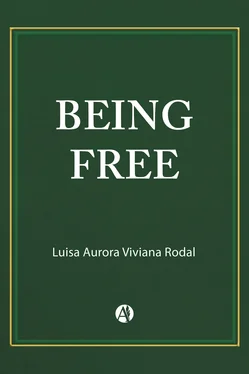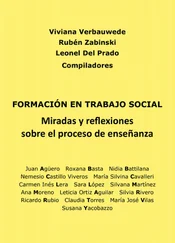Because of this, tolerance is the specific virtue pf humanity (proper to politics and human relations which include freedom of expression and of conscience). Tolerance is the unique area of freedom, the atmosphere without which it is impossible to exercise liberty. It is noteworthy that there is no freedom without tolerance, nor tolerance without justification and responsibility.
So, the rational discursive consensus of free democracy requires intrinsically of tolerance in the aspiration for the search of truth (Karl Popper3).
Therefore, the lack of agreement and the necessity of keeping apart before a destructive discourse of fundamentals patterns are motivated in the intolerance itself of a violent discourse and, even more, in the absence of a sincere search for the critical approximation to truth.
Popper speaks about three ethical principles in the approximation to truth: fallibility (the critical consideration of possible errors), the discursive rationality, the truth as regulative ideal of discourse. In this sense, Popper (remembering Voltaire, warns that tolerance is a necessary consequence of our weakness and possibility of error4.
Through what I said I wish to highlight that freedom shows as its most important enemy the fanatism, the intellectual irresponsibility, the absence of justification, the blind arbitrariness of dogmatism. The adversary of freedom is intolerance that blocks the questioning of the given for and by the creation of grounded possibilities which innovate. Fanatism and dogmatics do not allow iconoclasm and utopia, but nourish ideologies if not unquestionable, at least unquestioned.
The autonomy that freedom involves (which means a “taking over” of the action) is distinguished because all these from the arbitrariness. Already Augustine differentiated the free will (arbitrary) opposing it to the true and full liberty or libertas. Without any intention of appealing to theological concepts, I think it is of common sense not to identify the arbitrary will of free will with the responsible (justifiable) one.
Because of what has been said, the theme of justification is not superfluous.
In this Introduction I shall explicate central notions of the philosophy of Jurgen Habermas que influence in the theme of freedom. The following chapters shall expose the idea of justification in different areas (religious, scientific, legal, philosophic).The conclusion will dedicate itself to the conceptual consequences of the analysis of liberty from the perspective of justification and responsibility.
A Tuscarora (Native Americans) proverb says: “man has responsibility, not power”. Indeed, the power of freedom is responsibility itself, not the force of the arbitrariness. Differently from the inclusion in the randomness or in a natural determinism, the authority or possibility of an action that takes over and justifies the sense of being free is responsibility. The justification of the creative wish and with authority (or, remembering Kant, the freedom which involves another kind of causality different from the material one; that is to say, the causality of spontaneity or self-determination) implies an specific scope which cannot be identified with natural necessity nor with its opposed, mere chance. Free action may thus be expressed as the proper joy of personal achievement, foreign to the toil of loosing oneself in the anonymity and the thingness that the lack of freedom entails (or the indecision regarding making it effective in a creative life). Or, in Kierkegaardian term, the authenticity which freedom allows contrasts the existential despair.
According to Habermas, “only responsible persons can behave rationally”5. Only responsibility permits a rational autonomous conduct. For this, it is necessary that the actions be oriented intersubjectively recognizing critical pretensions of validity6. This is so because the possibility of the inter-subjective recognition of critizable and critical claims about the validity of rational statements is constitutive of our rationality (“the possibility of intersubjetive recognition of critizable validity claims is constitutive for their rationality”7). This is evident in the justificative force of cultural values,}}.
Because of what has been said, Habermas states that the rationality inherent in the communicative practice tends to an ideal accord through agreements based in justified reasons8. The argumentation is, then, a court of appeal, a critical judgement that corresponds itself with the critical task9. This justification task improves the arguments10 through the cooperative search of truth11.
Different from the mythical processes, which are its antithesis, the argumentative labour does not confound nature and culture through reified visions of the world. The argumentation opens a space of intersubjectivity in which the objective world through the propositional truth offers itself to rational critique free from coactions and prejudices12. Contrasting with the mythical dogmatism, which turns away from the rational discourse and criticism lacking of reflexivity13, the free pretensions are connected with veracity and sincerity and imply revision, equality among participants, authenticity and correction in the search for consensus14. Thus, there is interrupted or disturbed communication when these presuppositions are not satisfied15. And, it will be an universally valid agreement that which respects these warrants for speech acts16.
Then, one may comprehend that for Habermas argumentative critique and justification are fundamental notions for any free democratic society. Stretching and deepening in this way of comprehension the human relations (since, indeed, Habermas aims to describe a sociology that generates a participative and genuine democracy based in the intersubjective but personal and free action) I think it important to lighten an aspect of the argumentative task; the one referred specifically to the responsible justification. This last one is the generative point of any human freedom. And, in the ulterior Habermasian sense, I think human being should be understood as the free being who is author of itself creatively responsible.
Habermas is the thinker of human emancipation who proposes a Universal Pragmatic, and therefore he understands that the society is intrinsically moral. The ethic of discourse proposed in his work illuminates the idea of reciprocal expectations of behaviour based in justification of discourse. Morality is thus grown up from language and society. And the social pathologies appear when discourse turns itself into domination medium and language does not serve to its function.
Habermas speaks of an ideal situation of speech which he utopianly understands as contrafactic anticipation; that is to say, this situation is a normative criterion as limit ideal value of the intersubjective discourse toward a valid consensus #B.
Habermas goes beyond the individual monologic justification through his Pragmatic, distinguishing a communicative and justification attitude from other merely strategic18.
Therefore, language serves to socialization, which emancipatory intentionality convokes to freedom and a responsible self determination. There is in the communicative action an intentionality related to the capacity of answering before the other ones, a critical attitude, the recognition of the others, the sense that justice is one with solidarity. Morality is interwoven with the critical argumentation and responsible liberty. In words of Habermas:
“Anyone who is privatistic in his attitudes and evaluations that they cannot be explained and rendered plausible by standards of evaluation is not behaving rationally… actions regulated by norms, expressive self-presentations, and also evaluative expressions, supplement constative speech acts in constituting practice, which, against the background of a life world, is oriented to achieving, sustaining and renewing consensus -and indeed a consensus that rests on the intersubjective recognition of critizable validity claims. The rationality inherent in this practice is seen in the fact that communicatively achieved agreement must be based in the end on reasons”#B
Читать дальше












